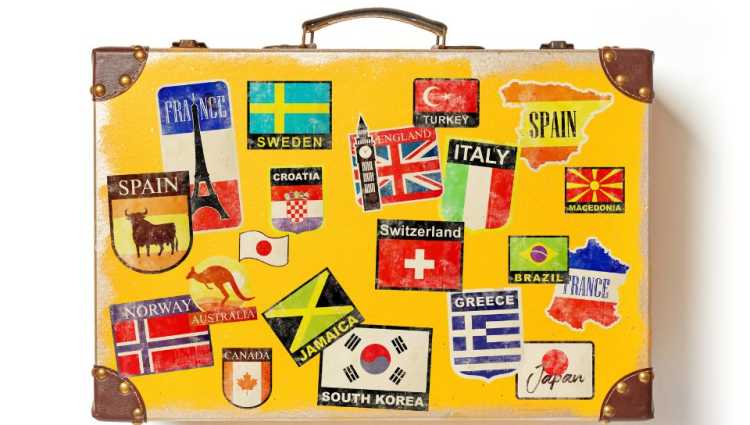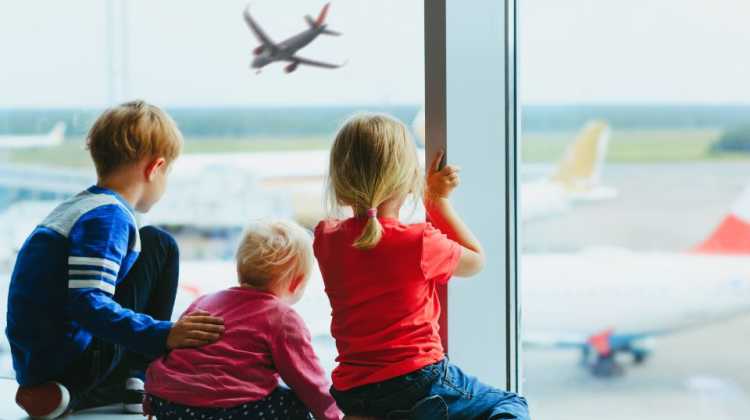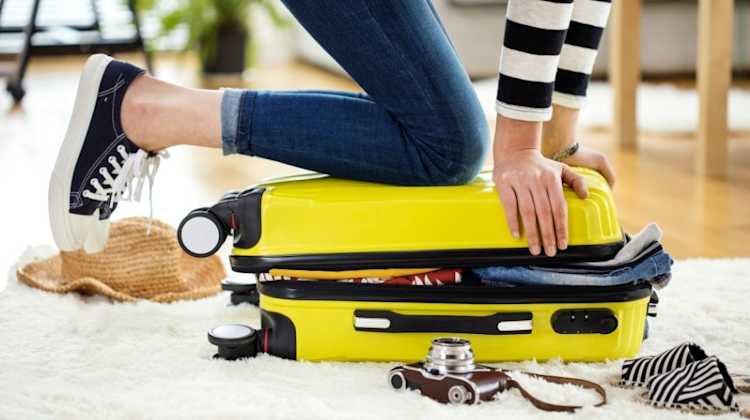What to Know Before and After Traveling Space-A Military Flights
by John W. Jackson Jr. - June 14th, 2022

Military families have the unique ability to travel on virtually free flights around the world using the military system of Space-A flights. These can be used for military, personal, or vacation travel.
However, the process is different from booking a ticket and flying from a public airport. Here are some important things that you should consider doing before traveling Space-A and things that you should do immediately after arriving at a location. Prepare for your Space-A trip with these travel tips.
What to know before traveling Space-A
Be sure you are signed up to go where you want with Space-A. Get on the list as early as possible because it could determine whether you get out sooner versus later.
Determine the place/places that you want to go and let your financial organization know where you will be, and when, especially if it will be overseas.
Make sure you have up-to-date phone numbers of family and friends at your origin and your destination in case of emergencies. Your doctor’s phone number might also come in handy.
Before traveling Space-A, update all travel documents. For Space-A this includes your military ID card and passport (if necessary). Passports should still have 6 months remaining after the completion of your trip.
Get a DEERS/MilConnect printout from the ID card/DEERS office for proof of your dependents. This is now required for children under the age of 10 that do not have their ID cards yet. Social Security numbers are no longer valid proof of dependents.
Make a plan, and a backup plan. When traveling Space-A, be prepared to alter or disregard the whole plan as the Space-A flights dictate. Research maps of your destination area. Some experts recommend planning for the first and the last day of your trip so there will be less surprises. Make sure to have adequate funds to rent a car, pay for an extra night in a hotel, or book a civilian airfare ticket to handle surprises.
Pack accordingly for those locations. Check the weather forecast for the area you are going to. Read our Space-A packing tips here.
Pack for both a cold and hot Space-A flight. Temperatures can vary depending on the cargo being carried. You should pack as light as possible to have the best chance to get on any Space-A aircraft that comes along. Pack only the most necessary items. There are Space-A baggage allowances, which you can learn about here.
If you have any medications, they should not be expiring while you are away. Renew them if you need to. Make sure you bring enough to cover your trip and a few extra, just in case. Some countries have limitations on how much medication you can bring in. It would be nice to have a letter from your doctor to explain any unusual drug needs.
Before traveling Space-A, if you live close to a passenger terminal and you are not familiar with it, stop by and check it out so you won’t be lost and risk missing a flight. This is especially important in the larger passenger terminals. Look for and find out about their long-term parking, eating establishments there or close by, and whatever other services they may provide.
Before you take off, you should set up any lodging and transportation needs, such as a rental car reservation.
Arrive at the passenger terminal at least 2 hours before the scheduled roll call and check in immediately upon arrival to declare yourself ready for travel. Roll call times have been known to change and people have missed flights by arriving too late.
Pay attention to all the flight announcements. One of them could be in your favor.
Learn to deal with last minute changes and frustration, because when traveling Space-A, you will encounter it. Hopefully not too often, but it is inevitable, it will happen.
What to do after your Space-A flight.
Upon arrival in a foreign country, obtain some of the local currency as soon as possible. Some do not accept any other currency and you don’t want to have to scramble around at a critical moment.
Obtain the phone number and website of the passenger terminal (if they have one) so you can plan your return trip.
Contact your transportation and get that squared away.
Check into your hotel and, if you planned your first day, try to follow your plan and only deviate if necessary.
If you have not done so already, research the area for activities, restaurants and shopping centers. Ask others at the terminal and at your lodging facility too.
Although some people don’t like to think about it, knowing where the nearest doctor and dentist is a good idea in case of emergency. Consider having your doctor recommend a local doctor in the area.
Enjoy yourself!
If you completed all these steps, then you planned very well. Have a good time and take that edge off.
PCSgrades.com is a community of military and veteran families helping each other with our biggest relocation needs through trusted reviews. Help us help each other and submit your reviews today. Together, we can truly make a difference!









